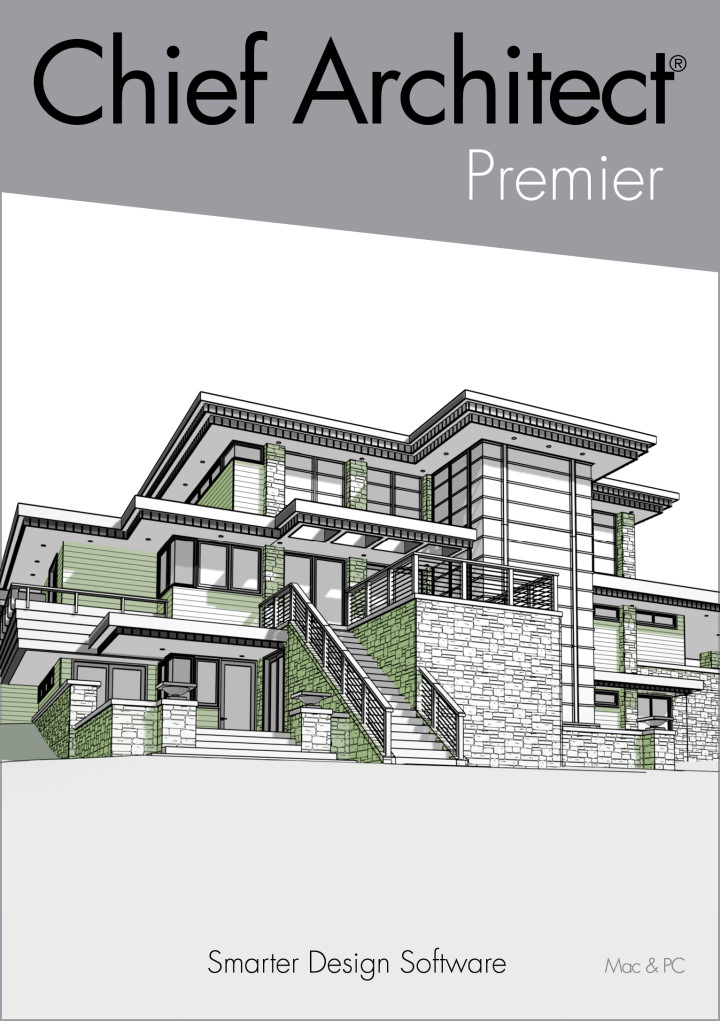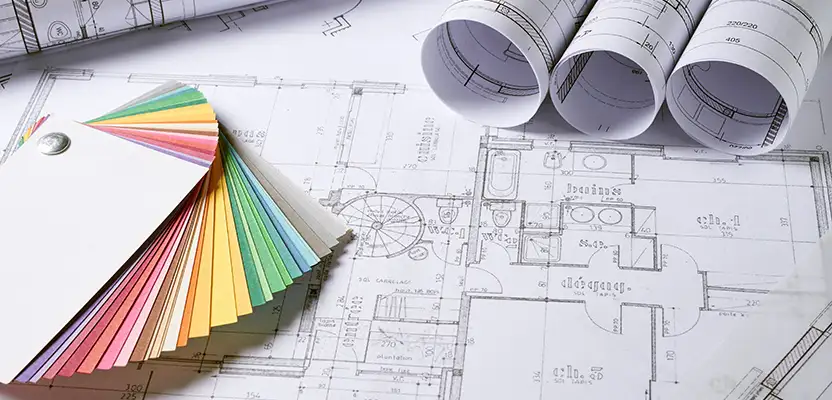Discover the Crucial Abilities and Qualities Every Architect Should Possess
As a designer, you recognize that success in your field exceeds just technological abilities. It has to do with blending creative thinking with usefulness, cultivating collaboration, and managing projects successfully. Each high quality plays a vital role in your capacity to develop areas that influence and function well. However what are the certain skills that can really set you apart? Allow's discover the vital qualities every Architect should cultivate to prosper in this ever-evolving occupation.
Imagination and Development
Creativity and development are at the heart of architecture, driving the layout of rooms that influence and operate flawlessly. As an architect, you'll need to believe outside the box, pushing borders to develop distinct remedies for your customers. You'll constantly check out new materials, methods, and innovations to boost your styles. Accepting innovation indicates staying ahead of patterns while being versatile to change.
You'll also draw ideas from various sources-- nature, art, and even daily life can trigger fresh concepts. This capacity to mix imagination with functionality enables you to deal with complicated problems, ensuring your styles fulfill both aesthetic and practical demands.
Strong Interaction Abilities
While developing impressive rooms calls for imagination, strong communication abilities are equally as critical for designers. You require to share your concepts plainly to customers, service providers, and staff member. Listening is just as crucial; comprehending your client's vision helps you produce styles that absolutely meet their requirements.
You'll frequently have to clarify complex concepts in such a way that's simple to understand, whether you exist a proposition or reviewing materials. Effective communication fosters cooperation, making sure every person gets on the exact same web page throughout the job.
Building partnerships is crucial, as well. When you establish count on and rapport, clients are more probable to share their problems and comments, bring about far better end results.
Last but not least, do not undervalue the power of body language and visual help. They can enhance your message and make your discussions a lot more engaging. Solid communication abilities not just raise your styles however additionally strengthen your specialist relationships in the building world.
Technical Effectiveness in Style Software
As you navigate the ever-evolving world of design, mastering design software program becomes crucial for equating your imaginative ideas into concrete strategies. Familiarizing yourself with programs like AutoCAD, Revit, and SketchUp will certainly not only improve your design abilities but likewise enhance your operations. These devices permit you to develop thorough drawings, 3D versions, and also simulations that can aid you picture and present your ideas much more efficiently.
Frequently updating your abilities and exploring new features can establish you apart from your peers, ensuring your designs are accurate and ingenious. Ultimately, technological effectiveness in design software is a keystone of effective architecture, aiding you bring your visions to life.
Understanding of Design Principles

Comprehending design principles also enables you to expect prospective obstacles early in the layout process. You can make informed selections that boost your styles when you're mindful of exactly how various materials act under numerous conditions. Your layouts need to not only be visually pleasing yet lasting and likewise sensible.
In addition, a strong grasp of engineering principles permits you to innovate within restrictions. You can press imaginative boundaries while still adhering to safety and security criteria. Eventually, this understanding enriches your building technique and establishes you apart in an affordable area.
Task Administration Talents
Effective job administration capabilities are important for designers, allowing you to supervise all aspects of a project from conception to conclusion. You'll require to coordinate with various stakeholders, consisting of professionals, customers, and designers, making certain everyone's on the exact same page. Establishing clear objectives, timelines, and budgets is fundamental; it aids you keep the task on the right track and within range.
As an architect, you must also be adept in danger management, recognizing potential problems prior to they intensify. Strong communication skills are essential, enabling you to verbalize your vision and motivate your group. You'll profit from being arranged and detail-oriented, as this helps improve procedures and avoid expensive delays.
Additionally, flexibility is crucial; projects usually evolve, and being flexible allows you to react effectively to adjustments. Eventually, your project monitoring skills can significantly influence the success of your architectural ventures, guaranteeing you supply top quality outcomes on time and within budget.
Attention to Information
While managing jobs is crucial, your attention to detail can make a considerable difference in the top quality of your job. Every line you attract, every product you choose, and every small spec you keep in mind adds to the general success of a project. You require to be thorough, making sure that your designs not only meet aesthetic criteria however likewise comply with constructing policies and codes.
Missing out on even a little information can result in pricey revisions or security concerns down the line. By cultivating a keen eye for information, you improve your capacity to find potential troubles prior to they escalate. This vigilance not only conserves you time and sources but also builds your online reputation as a dependable Architect. Bear in mind, it's commonly the smallest information that raise a project from excellent to extraordinary. So, embrace this skill, and allow it direct your layout process, making certain that your vision is carried out flawlessly.
Versatility and Problem-Solving Skills
As an engineer, you'll often encounter unforeseen adjustments in design and job demands. Your capacity to accept these changes and locate ingenious remedies is essential for success. Remaining versatile in your method not just enhances your problem-solving abilities but additionally maintains your projects on course.
Embracing Adjustment in Layout
Embracing modification in layout is vital for architects, particularly when guiding developing client needs and emerging modern technologies. You require to grow adaptability, as tasks often shift instructions based on brand-new understandings or restraints. Being open to change allows you to discover cutting-edge techniques and produce services that resonate with your customers.
When faced with obstacles, your analytic Read More Here abilities come right into play. You'll typically require to reconsider concepts and change strategies on the fly, guaranteeing that the last end result straightens with the client's vision while meeting safety and look at here now regulative standards. By being clever and flexible, you not just boost your layouts yet likewise construct trust fund with your customers, verifying that you can navigate the intricacies of contemporary style efficiently.
Cutting-edge Solutions to Challenges

Versatility in Job Management
While navigating the intricacies of job monitoring, adaptability ends up being an essential asset for designers. You'll typically encounter unforeseen challenges, from design changes to spending plan constraints, calling for fast reasoning and adaptability. Welcoming adjustment allows you to pivot your techniques and locate ingenious solutions, making sure job success.
Strong analytic skills are vital; they enable you to assess situations, weigh alternatives, and apply efficient solutions on the fly. websites When collaborating with varied groups, being open to comments and alternative concepts promotes cooperation and stimulates imagination.
Regularly Asked Questions
What Educational History Is Needed to Come To Be a Designer?
To become an architect, you'll need at the very least a professional level in style, frequently a Bachelor's or Master's. Obtaining and completing an internship licensure with tests is essential for your occupation development.
Just How Essential Is Networking in the Architecture Area?
Networking's important in architecture. It aids you build relationships, find work possibilities, and gain understandings from knowledgeable professionals. By attaching with others, you boost your occupation prospects and stay updated on industry patterns and growths.
What Are the Usual Job Paths for Architects?
Usual profession courses for architects include layout functions in firms, job monitoring, city preparation, and specialized locations like lasting architecture. Architect. You may also discover teaching or consulting, relying on your experiences and interests
How Can Engineers Remain Upgraded With Industry Fads?
To remain upgraded with sector trends, you should regularly participate in conferences, join professional organizations, register for appropriate publications, and engage with on-line discussion forums. Networking with peers also aids you obtain insights right into arising growths in style.
What Role Does Sustainability Play in Modern Architecture?
Sustainability forms modern style by stressing energy efficiency, source conservation, and environment-friendly materials. You'll create spaces that reduce ecological effect, enhance resident health, and respond to climate challenges, making your designs more impactful and pertinent.
While designing remarkable areas requires imagination, strong communication skills are simply as crucial for engineers. Strong interaction skills not only boost your layouts yet also reinforce your specialist connections in the architectural globe.
Proficiency in layout software lays the foundation for a deeper understanding of design concepts, which is vital for architects.As a designer, you'll frequently deal with unanticipated changes in design and job demands.Accepting adjustment in design is necessary for engineers, particularly when steering progressing client requirements and arising innovations.